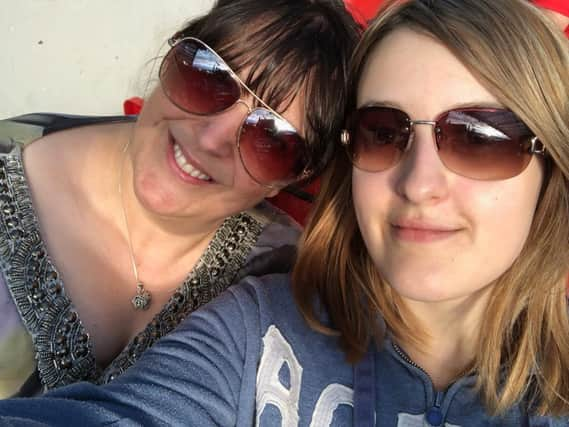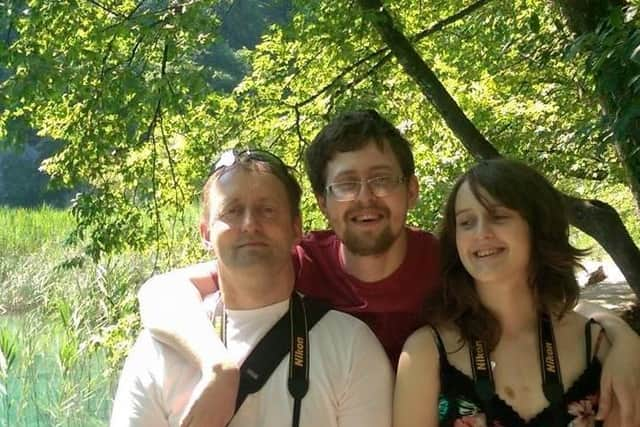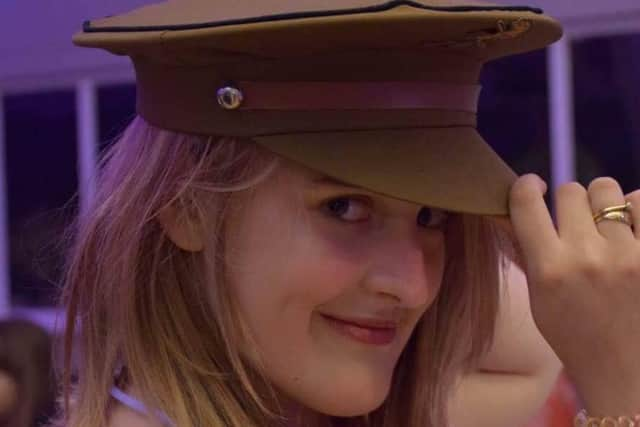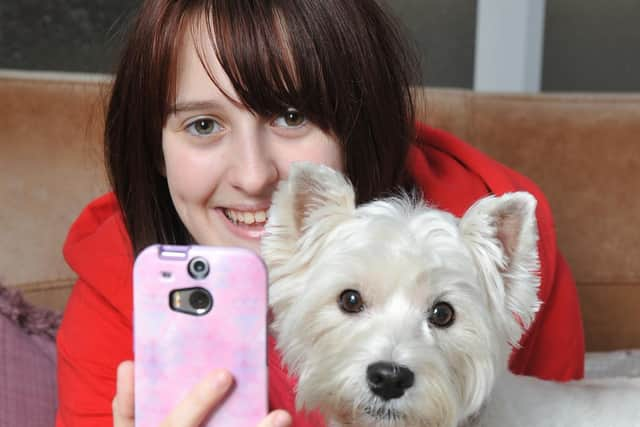"We had five more years with Emily thanks to transplant"


Sam Linaker has a very special reason for wishing the British Heart Foundation a happy 60th birthday today.
She says medical research, much of it made possible through the work of the BHF, enabled her family to have five more very precious years with their daughter Emily.
Advertisement
Hide AdAdvertisement
Hide AdEmily died at the age of 19 in September 2018 - almost five years after having a heart transplant in November 2013.


It took a year for her to get back to full strength.
But mum Sam, from Hoghton, near Preston, says she and husband Kevin will be forever grateful for those five extra years.
Sam a nurse at Liverpool's Walton Hospital said: "We got to see her grow up. She was 12 when she started having major issues with her heart and we could have lost her. We were given less than a five per cent cent chance of her surviving her heart transplant because she was so sick. She not only survived she grew up, she fell in love, we took her to lots of different countries. In those five years we did as much as we possibly could. We just had the best time."
Sam continued: "She had grown into a lovely young woman and such a caring, kind and compassionate person. I've always said I know I didn't get to keep her, but it was a privilege to be her mum."
Advertisement
Hide AdAdvertisement
Hide Ad

Emily, a former pupil of Coupe Green primary school at Hoghton, suffered from the incurable condition restrictive cardiomyopathy which affects the heart muscles. After the transplant at the Freeman Hospital in Newcastle she was able to visit many countries, including trips to New Zealand, Canada, Florida and Cyprus.
Sam said: "After about 12 months she was back more or less to normal; doing all the things her friends did. She was living a normal life. It was absolutely amazing. She was doing skiing lessons. She went to a music festival with her friends.. ..It was just so lovely for her to have the normal life everybody else takes for granted."
A keen artist and photographer she had been studying at Blackburn College when she died unexpectedly at Freeman Hospital due to complications caused by her body rejecting the transplant. Sam recalled: "Literally the day she passed away she was painting. She was very passionate about her photography and her art."
Sam and Emily had worked to promote organ donation and gave talks, primarily to doctors and nurses. Sam said: :"We wanted to raise awareness - because those five years were so precious, to get them was a privilege. We got that and it is something we will always be eternally grateful for. I still believe we were extremely lucky. Other people look and think we lost a daughter...but we got five more years. That was wonderful. I'm still grateful to the donor."
Advertisement
Hide AdAdvertisement
Hide Ad

Sam has helped to fundraise for both the British Heart Foundation and the Newcastle Hospital where Emily had her transplant. She said: "I'm extremely grateful for the British Heart Foundation for all the research that's been going on and all the advances just wouldn't be possible without their input."
Sam said Emily's death came as "a complete and utter shock".
As a trained nurse Sam was used to monitoring Emily's condition and knew her blood pressure had dropped and Emily had been feeling a little unwell the previous week. She asked to take Emily back to the hospital where the transplant was carried out. She recalled: "They were treating her for mild rejection...We weren't ready. It happened so fast. There was no time to save her. One of my comforts is that we had gone up to Newcastle. She was in the best possible place - if they couldn't save her nobody could."
Emily had had medication for two days, but very suddenly became tired and dizzy and went into cardiac arrest . It was later discovered she had a post transplant condition called CAV (cardiac allograft vasculopathy). Sam said: "It kind of nibbles away at the edges of the heart,. It can causes tightening where the new heart and old vessels join together. They narrow quite quickly once it happens, It's notoriously difficult to diagnose as you can't see it on main tests. One of her main vessels was down to a millimetre. Lots of the vessels had narrowed."
Advertisement
Hide AdAdvertisement
Hide AdSam added that she had used the BHF information leaflets: "They were a very, very valuable source of information. You do feel conditions like this (Emily's) are very isolating. They are so rare, especially in children. When you read literature like that you don't feel so isolated. You realise it's not just us, it's not just Emily, it's other people as well."
* See our related reports on the British Heart Foundation's 60th birthday and how you can help the charity on the Post's website.
** * The Lancashire Post is more reliant than ever on you taking out a digital subscription to support our journalism. For unlimited access to Lancashire news and information online, you can subscribe here.